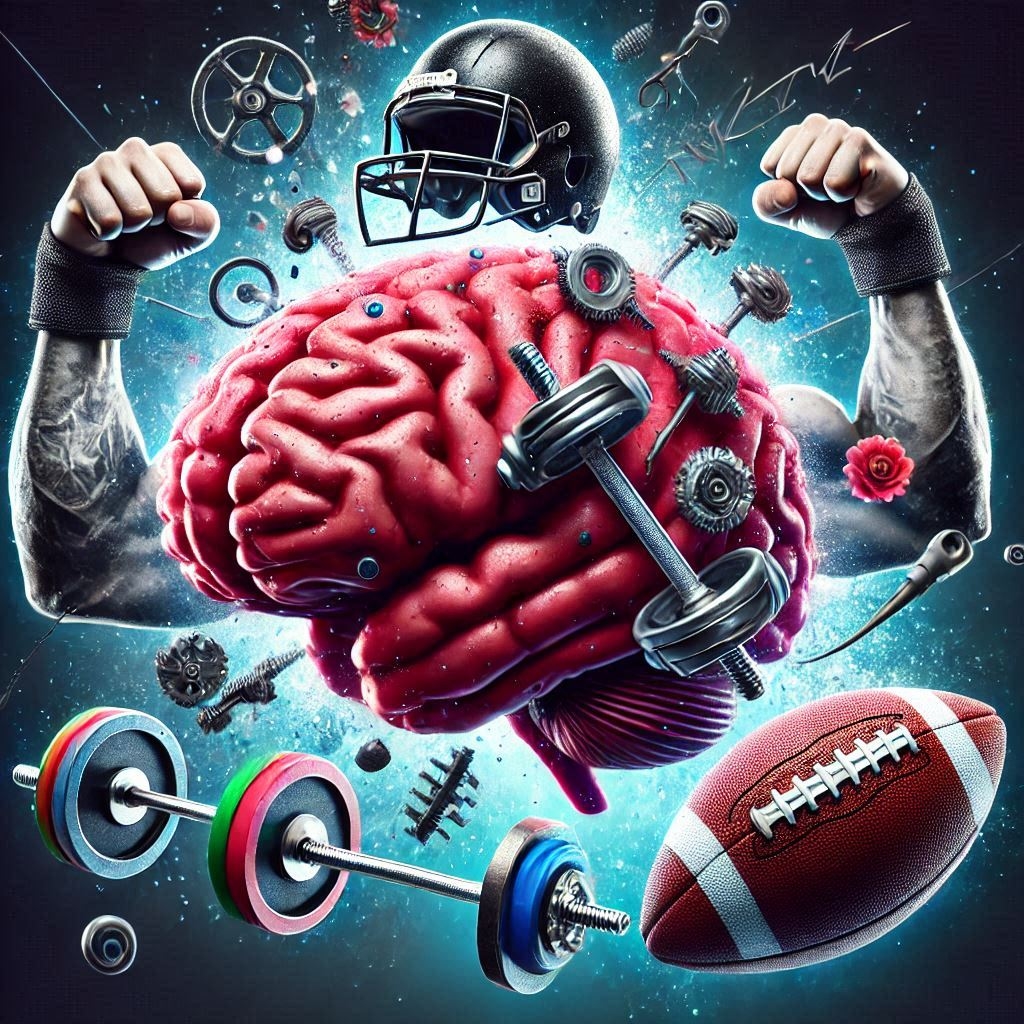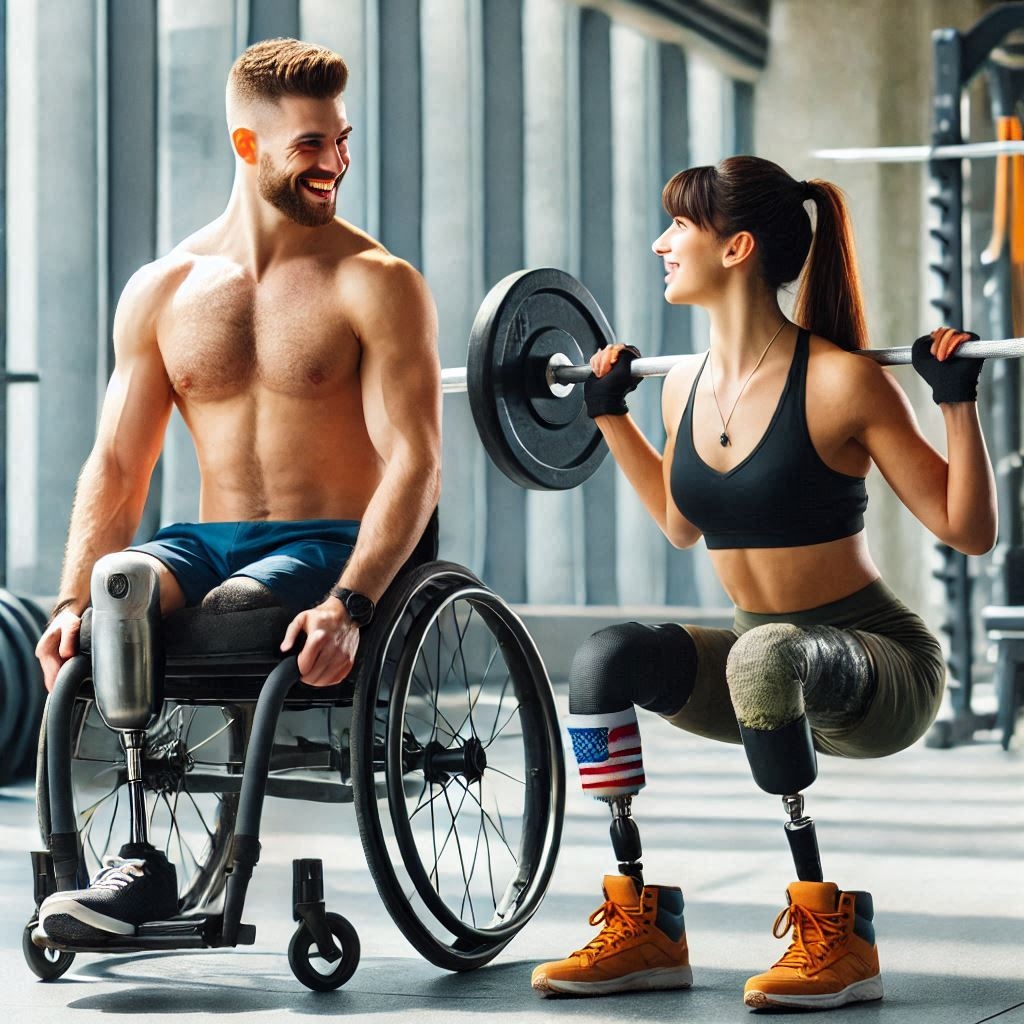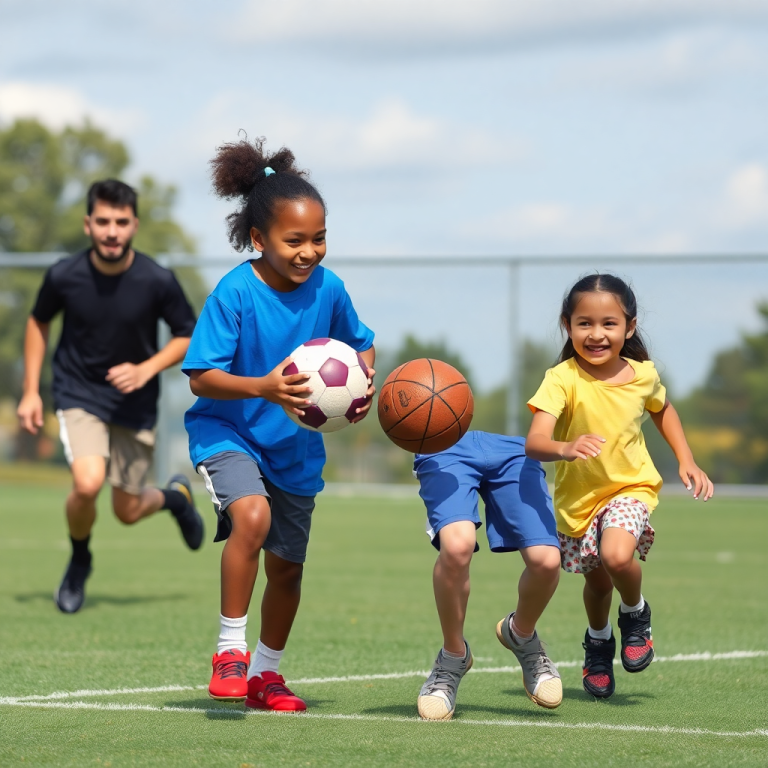Muscles Powerful Identity For No.1 Growth
Does Having Big Muscles or Strong Muscles Matter in Sports?
When we think of athletes, images of muscular physiques and powerful bodies often come to mind. From bodybuilders to football players, muscles seem to play a crucial role in sports performance. But does having big muscles or strong muscles actually matter in sports? And is there a point where it becomes too much?
The Role of Muscles in Sports
Muscles are essential for movement, strength, and overall physical performance. In sports, they contribute to various aspects of an athlete’s abilities.

Power and Strength
Strong muscles enable athletes to generate force quickly, which is crucial in sports that require explosive movements, such as sprinting, weightlifting, and jumping.
Endurance
Muscular endurance is important for sports that involve prolonged physical activity, such as marathon running, cycling, and swimming. Well-conditioned muscles help athletes maintain performance over extended periods.
Injury Prevention
Strong muscles support joints and stabilize the body, reducing the risk of injuries. This is particularly important in contact sports like football and rugby, where the physical demands are high.
Speed and Agility
Muscles contribute to an athlete’s speed and agility by enabling quick, precise movements. This is vital in sports like soccer, basketball, and tennis.

Big Muscles vs. Strong Muscles
Muscle size and muscle strengthmost of the time are related, they are not the same and have very different end results.
Muscle Size (Hypertrophy)
This refers to the increase in muscle mass. Bodybuilders, for example, focus on hypertrophy to achieve large, well-defined muscles. However, larger muscles do not always equate to greater strength.
Muscle Strength
This refers to the ability to exert force. Strength training aims to enhance the functional capacity of muscles. Athletes such as powerlifters and Olympic weightlifters prioritize strength over size, although they often develop significant muscle mass as a byproduct.
The Importance of Balance
For many sports, a balance between muscle size and strength is essential.
Functional Performance
In sports, functional performance is more important than muscle appearance. Athletes need muscles that are strong and capable of performing specific tasks efficiently.

Speed and Flexibility
Excessive muscle mass can sometimes hinder speed and flexibility. For instance, sprinters and gymnasts need to maintain a lean physique to optimize their performance.
Energy Efficiency
Carrying excessive muscle mass can be energetically costly, especially in endurance sports. Athletes need to find the right balance to ensure they do not tire quickly.
Potential Downsides of Excessive Muscle Development
While having strong muscles is generally beneficial, there are potential downsides to excessive muscle development.
Reduced Flexibility
Overdeveloped muscles can reduce an athlete’s range of motion and flexibility, which may impact performance in sports requiring agility and precise movements.
Increased Risk of Injury
Imbalances between muscle groups can lead to injuries. For example, overly strong quadriceps relative to hamstrings can increase the risk of knee injuries.

Energy Demand
Larger muscles require more oxygen and nutrients, which can be a disadvantage in endurance sports where efficiency is key.
The Role of Speed Muscles
Speed muscles, also known as fast-twitch muscle fibers, play a critical role in sports that require quick, explosive movements. These muscles are essential for activities that demand speed and power, such as sprinting, jumping, and rapid changes in direction.
Explosive Power
Fast-twitch fibers generate force quickly, allowing athletes to perform explosive movements. This is crucial in sports like track and field, basketball, and football.
Short-Duration Performance
Speed muscles are designed for short bursts of high-intensity activity. They fatigue more quickly than slow-twitch fibers but provide the rapid force needed for sprinting and jumping.
Training Focus
Athletes who rely on speed must incorporate specific training techniques to develop their fast-twitch fibers. Plyometrics, sprint drills, and high-intensity interval training (HIIT) are effective methods to enhance speed muscle performance.
Balance with Endurance
While fast-twitch fibers are essential for speed, athletes also need to balance their training to develop slow-twitch fibers for endurance. This ensures they can maintain performance over longer durations.
Other Types of Muscles in Sports
In addition to the commonly discussed muscle types (fast-twitch and slow-twitch), there are several other muscle-related factors that play a role in sports performance.
Stabilizer Muscles
These muscles are crucial for maintaining balance and stability during movements. They support primary muscles and help prevent injuries by ensuring proper joint alignment.
Core Muscles
The core muscles, including the abdominals, obliques, and lower back muscles, are vital for almost all sports. They provide a stable base for movements, enhance power transfer, and support overall body control.

Muscle Coordination
Efficient muscle coordination ensures that different muscle groups work together seamlessly. This is important in sports that require complex, multi-joint movements, such as gymnastics, boxers and martial arts.
Sports Requiring Brain Power
While muscles are essential for many sports, there are several sports and activities that rely more on brain power and cognitive skills than physical muscle development. These sports often emphasize strategy, mental agility, and precision. Overtime these have become sports.
Chess
Often considered a sport, chess requires intense mental focus, strategic thinking, and the ability to anticipate an opponent’s moves. Physical fitness is less important than cognitive skills.
eSports
Competitive video gaming, or eSports, demands quick reflexes, strategic planning, and exceptional hand-eye coordination. Mental endurance and the ability to stay focused under pressure are crucial.
Bridge
This card game requires players to use logic, memory, and strategy to outwit their opponents. While physical fitness is not a factor, mental sharpness is key to success.
Poker
Success in poker relies heavily on psychological skills, including reading opponents, bluffing, and making calculated decisions based on incomplete information. Mental resilience and focus are more important than physical strength.
The Importance of Recovery and Muscle Maintenance
Regardless of the type of muscles involved, recovery and muscle maintenance are crucial aspects of an athlete’s regimen. Proper recovery ensures that muscles heal, grow stronger, and remain functional.

Key components of recovery include
Rest
Adequate rest is essential for muscle recovery. It allows the body to repair damaged muscle fibers and replenish energy stores.
Nutrition
A balanced diet really is important when it comes to muscles. Rich protein foods, carbohydrates, and healthy fats can support & rebuild. Muscle repair and growth with a diet can speed up recovery anddevelopment. Hydration is always a must as it helpw with moisture and circulation. This helps maintain muscle function.
Stretching and Flexibility
Incorporating stretching exercises helps maintain muscle flexibility and reduce the risk of injuries.
Active Recovery
Light activities such as walking or swimming can promote blood flow and aid muscle recovery without putting additional strain on the muscles.
The Mental Aspect of Sports Performance
Muscles alone do not guarantee success in sports. The mental side of sports performance & muscles is equally important. Psychological factors such as focus, determination, and resilience play a significant role in an athlete’s success.

Techniques to enhance mental performance include
Visualization
Athletes use mental imagery to visualize successful performance and build confidence.
Mindfulness and Relaxation
Practices such as meditation and deep breathing can help athletes manage stress and maintain focus.
Goal Setting
Setting realistic, achievable goals provides motivation and direction for athletes.
Positive Self-Talk
Encouraging oneself with positive affirmations can boost confidence and reduce anxiety.
Conclusion
In conclusion, having big or strong muscles does matter in sports, but the significance varies depending on the specific demands of the sport. Muscle strength is crucial for power and performance, while muscle size is not always the most important factor. Athletes must strike a balance between developing functional strength and maintaining the agility and endurance required for their sport. Additionally, speed muscles and other specialized muscle types play vital roles in athletic performance. However, some sports rely more on brain power and cognitive skills than physical muscle development, emphasizing the diverse nature of athletic excellence.
Recovery and muscle maintenance, along with the mental aspect of sports performance, are crucial for optimizing athletic performance. By understanding the role of muscles in sports and the importance of balance, athletes can enhance their training, improve their performance, and minimize the risk of injury.
Join the Discussion
Do you think big muscles or strong muscles are more important in sports? How do you find the right balance for muscle development in your training? What are your strategies for recovery and mental preparation? Whether you’re an athlete, a coach, or just a sports enthusiast, your perspective is valuable.







I like this post, enjoyed this one appreciate it for posting.
It’s onerous to find educated folks on this subject, but you sound like you realize what you’re speaking about! Thanks
I’m curious to find out what blog system you happen to be utilizing? I’m experiencing some minor security problems with my latest site and I’d like to find something more safeguarded. Do you have any suggestions?